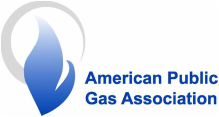
It appears that one of the primary drivers for the meeting was concern within the electric industry regarding the lack of liquidity for natural gas trading during weekends, holidays, etc. Commissioner Moeller presided over the meeting and was the only Commissioner in attendance. It is important to note that while this meeting and issue were given a FERC docket number for purposes of accepting comments, this is not an official FERC proceeding.
The meeting began with Commissioner Moeller communicating that the purpose of the meeting was to serve as a forum for discussion. A consistent point made throughout the meeting and reiterated by Commissioner Moeller was that electric generators are a new and growing customer in the natural gas market and one whose needs vary on an hour by hour basis throughout the year. During the meeting, APGA’s representatives communicated, among other things, that the current system of natural gas trading has worked well for them and for other APGA members. They also communicated that natural gas trading liquidity is not an issue in all areas of the country. For example, in the Southeast, the electricity generators have built and continue to build necessary pipelines to supply their capacity. APGA submitted comments in response to the meeting and those comments can be viewed on the APGA website at www.apga.org/comments.
Another regulatory issue APGA has been working on is the Quadrennial Energy Review (QER) being conducted by the Department of Energy (DOE). The QER is intended to provide a multiyear roadmap that outlines federal energy policy objectives, legislative proposals to Congress, executive actions, an agenda for research and development programs and funding, and financing and incentive programs. As part of this process, several regional meetings were held throughout the country that focused on a wide variety of issues ranging from infrastructure constraints and siting to gas-electric interdependence and natural gas, transmission, storage and distribution. APGA members participated in several of these meetings and APGA will be submitting comments to DOE. Comments are due on October 10 and a copy of APGA’s comments will be available at www.apga.org/comments.
As we continue to develop domestic supplies of natural gas and further utilize natural gas in electric generation, the concept of the natural gas smart meter will become more prevalent. Earlier this year, DOE published a draft framework document exploring the connectivity of residential appliances. Within this framework document, DOE references both electric and natural gas appliances.
APGA and our members have supported demand side management and smart meter programs for years. In 2011, APGA’s Research Foundation helped to fund the GTI/Navigant white paper “Natural Gas in a Smart Energy Future.” The ability to integrate and fully recognize the benefits of a smart energy future is an important and complex process.
The concept of smart natural gas meters and demand side programs can be a very important aspect in how a utility can help a costumer control cost as well as predict demand. As the gas/electric relationship continues to evolve, the need to incorporate both smart electric and smart natural gas meters will become even more critical to ensure our infrastructure’s reliability.
For questions on APGA’s legislative and regulatory actions, please contact Dave Schryver by phone at 202-464-2742 or by email at [email protected].

 RSS Feed
RSS Feed
